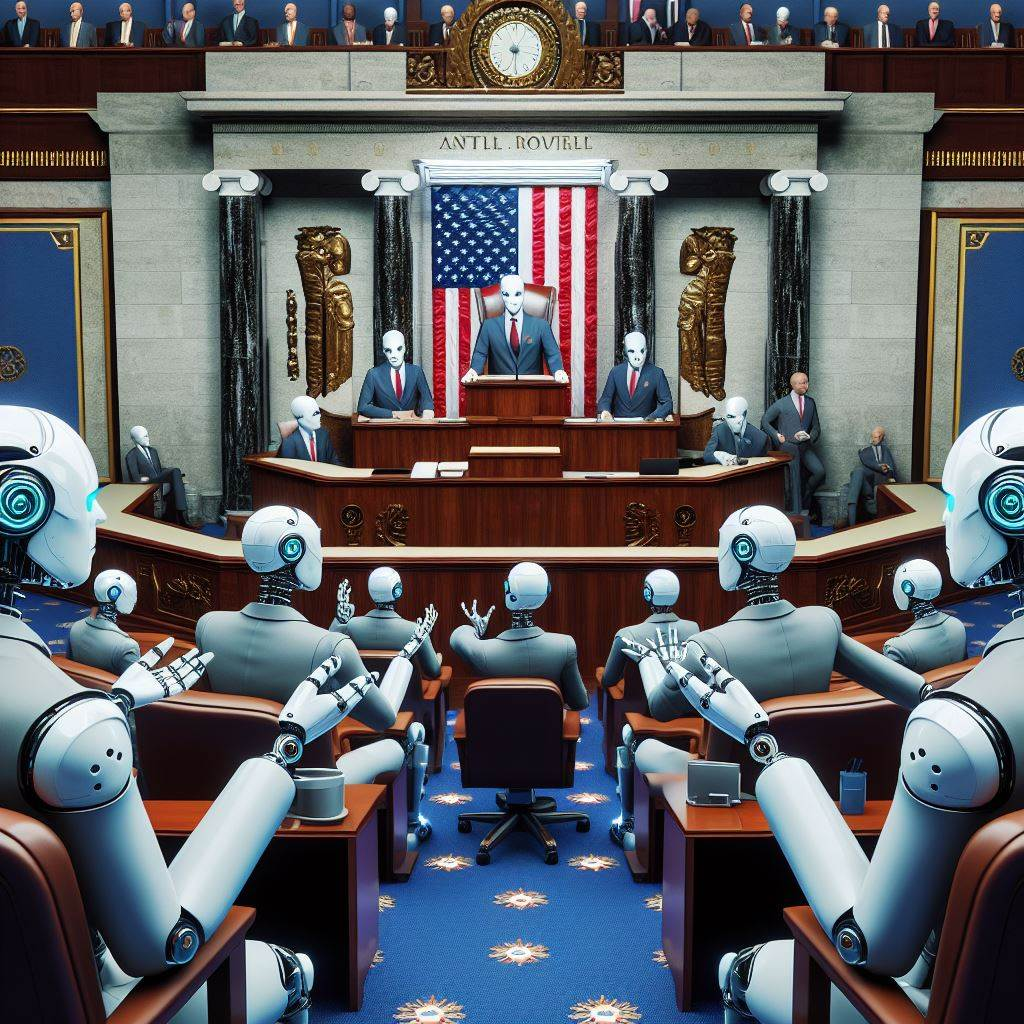US Bill Proposes Public AI Training Material Database
In recent years, the intersection of artificial intelligence (AI) and copyright law has become a hotbed of debate and contention. The rapid advancement of AI technologies, particularly generative AI models, has raised concerns about the ethical use of copyrighted materials in training datasets. These concerns have prompted lawmakers to take action, with US Representative Adam Schiff introducing groundbreaking legislation aimed at bringing transparency and accountability to the AI industry.

The Generative AI Disclosure Act, proposed by Representative Schiff, seeks to address the issue of undisclosed use of copyrighted works in AI training datasets. Under the provisions of the bill, AI companies would be required to disclose all copyrighted materials used in building or altering their training datasets. This requirement applies not only to future AI systems but also retroactively to existing ones. The goal is to ensure that creators are aware of when their work contributes to AI training datasets, thereby safeguarding their rights and contributions.
The proposed legislation has garnered widespread support from various sectors of the creative community. Organisations such as the Recording Industry Association of America, Writers Guild of America, and Screen Actors Guild-American Federation of Television and Radio Artists have voiced their support for the bill, emphasising the importance of transparency and accountability in the use of copyrighted materials.
One of the key provisions of the Generative AI Disclosure Act is the establishment of a publicly available online database where all notices regarding copyrighted works used in AI training datasets would be recorded. This database would serve as a resource for creators to identify if their materials have been used and to seek appropriate credit or compensation. Additionally, AI companies found to violate the act would face civil penalties, further incentivizing compliance with the disclosure requirements.
The introduction of this legislation marks an important step towards addressing the ethical and legal challenges posed by the use of copyrighted materials in AI development. As AI technologies continue to evolve, it is imperative that regulatory frameworks keep pace to ensure that innovation is balanced with respect for intellectual property rights.
In addition to legislative efforts, the US Copyright Office has announced plans to issue guidance on the copyright implications of AI-generated content. While this guidance may provide clarity on certain aspects of AI copyright law, questions regarding the use of copyrighted materials in AI training datasets remain unanswered. Nevertheless, these developments signal a growing recognition of the need to address the complex issues at the intersection of AI and copyright law.
Furthermore, the implications of the Generative AI Disclosure Act extend beyond the realm of copyright law. By requiring AI companies to disclose their use of copyrighted materials, the legislation promotes transparency and accountability in the AI industry as a whole. This transparency not only benefits creators but also fosters trust and confidence among consumers and stakeholders.
Moreover, the bill reflects a broader societal recognition of the need to address the ethical and social implications of AI technologies. As AI increasingly permeates various aspects of our lives, from entertainment and media to healthcare and finance, it is essential to ensure that these technologies are developed and deployed in a responsible and ethical manner.
In this context, the Generative AI Disclosure Act represents a significant step towards establishing clear guidelines and standards for the ethical use of AI. By requiring AI companies to disclose their use of copyrighted materials and providing avenues for creators to assert their rights, the legislation strikes a balance between promoting innovation and safeguarding intellectual property.
As the debate over AI and copyright law continues to evolve, it is clear that there are no easy answers or quick fixes. However, initiatives like the Generative AI Disclosure Act represent important milestones in the ongoing effort to navigate the complex intersection of technology, creativity, and legal rights.
Ultimately, the success of such initiatives will depend on collaboration and cooperation among lawmakers, industry stakeholders, and the broader public. By working together to develop thoughtful and inclusive policies, we can ensure that AI continues to advance human progress while respecting the rights and dignity of all individuals involved.
Moving forward, it will be crucial for lawmakers, industry stakeholders, and creative professionals to collaborate in developing comprehensive solutions that promote innovation while protecting the rights of creators. By fostering transparency, accountability, and respect for intellectual property rights, we can ensure that AI technologies continue to advance in a manner that benefits society as a whole.
In conclusion, the introduction of the Generative AI Disclosure Act marks a pivotal moment in the ongoing dialogue surrounding AI ethics and copyright law. By addressing the need for transparency and accountability in the use of copyrighted materials, the legislation not only protects the rights of creators but also lays the groundwork for a more ethical and responsible AI industry.
However, the journey towards establishing a fair and equitable framework for AI development and deployment is far from over. As AI technologies continue to advance at a rapid pace, new challenges and complexities will undoubtedly arise. It will require ongoing collaboration and dialogue among lawmakers, industry stakeholders, and the broader public to navigate these challenges effectively.
Moreover, the ethical implications of AI extend beyond copyright law to encompass broader societal issues such as privacy, bias, and accountability. As we continue to grapple with these issues, it is imperative that we prioritise values such as transparency, fairness, and human dignity.
Ultimately, the success of AI technologies will depend not only on their technical capabilities but also on the ethical principles that guide their development and use. By embracing a proactive and inclusive approach to AI ethics, we can harness the full potential of these technologies to benefit society while mitigating their risks and challenges.
In the coming years, it is essential that we remain vigilant and proactive in addressing the ethical and legal implications of AI. By doing so, we can ensure that AI continues to serve as a force for good in the world, enriching our lives and advancing human progress for generations to come.
for all my daily news and tips on AI, Emerging technologies at the intersection of humans, just sign up for my FREE newsletter at www.robotpigeon.be






